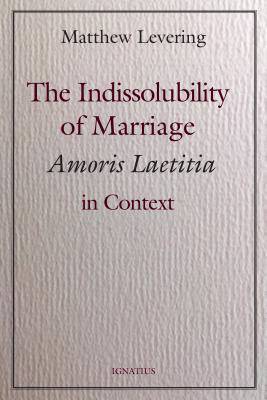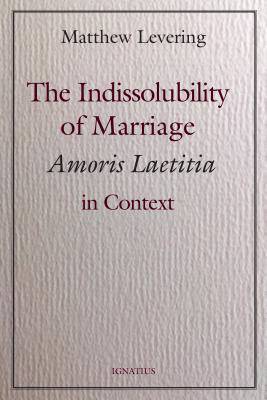
- Retrait gratuit dans votre magasin Club
- 7.000.000 titres dans notre catalogue
- Payer en toute sécurité
- Toujours un magasin près de chez vous
- Retrait gratuit dans votre magasin Club
- 7.000.000 titres dans notre catalogue
- Payer en toute sécurité
- Toujours un magasin près de chez vous
Description
This well-researched book explains why the Catholic Church continues to teach marital indissolubility and addresses the numerous contemporary challenges to that teaching.
It surveys the patristic witness to marital indissolubility, along with Orthodox and Protestant views, as well as historical-critical biblical exegesis on the contested biblical passages. It also surveys the Catholic tradition from the Trent through Benedict XVI, and it examines a Catholic argument that the Catholic Church's teaching can and should change. Then it explores Amoris Laetitia, the papal exhortation from Pope Francis on marriage, and the various major responses to it, with the issue of marital indissolubility at the forefront. Finally, it retrieves Aquinas's theology of marital indissolubility as a contribution to deepening current theological discussions.
The author argues that Amoris Laetitia upholds the traditional Catholic teaching that a valid and consummated Christian marriage is absolutely indissoluble, in accord with the teachings of Jesus and the Apostle Paul, as solemnly and authoritatively taught by the Council of Trent and affirmed by later popes and the Second Vatican Council. He says that Amoris Laetitia should be interpreted and implemented in light of the doctrine of marital indissolubility: implementations that undermine this doctrine should be avoided.
Levering says that numerous contemporary Catholic theologians and biblical scholars are mistakenly turning the indissolubility of marriage into contingent dissolubility based upon whether the spouses continue to act in loving ways toward each other. The sacrament's gift of objective indissolubility is thereby undermined. Fortunately, the main interpreters of Amoris Laetitia, whose views have been approved by Pope Francis, insist that the Apostolic Exhortation does not change the doctrine of marital indissolubility in any way.
Spécifications
Parties prenantes
- Auteur(s) :
- Editeur:
Contenu
- Nombre de pages :
- 220
- Langue:
- Anglais
Caractéristiques
- EAN:
- 9781621642930
- Date de parution :
- 10-05-19
- Format:
- Livre broché
- Format numérique:
- Trade paperback (VS)
- Dimensions :
- 150 mm x 226 mm
- Poids :
- 362 g







